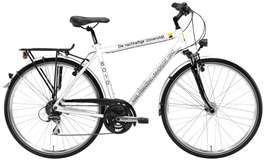PhD NAWI – Your Welcome Guide
Download as PDF
Welcome from PhD NAWI
Congratulations on landing one of the sought after positions at the University of Graz. We are happy to have you as part of our community for the coming years!
We are your student representation (Studienvertretung) for everything having to do with your work and studies. We consist of three democratically elected PhD students as well as a motivated group of volunteer PhD students which anyone – including you – can join. Given that you have just started, we of course understand if you want to focus on your work. Still, you are welcome to make use of our offers such as meet-ups, excursions, advocacy and more!
PhD NAWI is your main place to ask if you are in doubt so feel free to contact us:
Website: https://oehunigraz.at/doktorat-nawi
Email: doktoratnawi@oehunigraz.at
Instagram: https://instagram.com/phd.graz
Chat with other NAWI PhD students on our Discord server:https://discord.gg/EyuQMK7M
See you around,
PhD NAWI
Your job as an employee
If you are employed, the formal parts of your job are described in your contract and can vary wildly. Note that all PhD students are not employed under the same contract and some are not employed at all. This can for instance mean that you are expected to teach more than other PhD students or maybe not at all. Similarly, some are employed for 4 years, while others for 3 years. Take note of what the contract calls your position – “University Assistant”, “Lecturer”, “PhD Student” etc. – as each position has different responsibilities and different salaries. For questions about your contract, contact Human Resources, e.g. the ones you spoke to when signing said contract. Ask your immediate employer if you need to speak German as part of your work.
If you are not employed by the university, but by a different institution, your situation might be different. Please let us know if you happen to not be employed at all. We are currently not aware of any such cases.
Enrolling in a PhD programme
When you start working at the university, you are typically not yet an official student as the enrollment is a process completely separate from your employment.
For details on how to enroll, see here:
https://studienabteilung.uni-graz.at/en/studying/admission-registration/doctoral-programmes/
The NAWI faculty has the following doctoral schools:
- Biology
- Chemistry
- Earth Sciences
- Discrete Mathematics
- Molecular Biology and Biochemistry
- Pharmacy
- Physics
- Psychology
The doctoral school you want to apply for is often, but not always, in the same place as the institute. You might ask the others in your group what they did. Note that your supervisor needs to be affiliated with the doctoral school.
When applying for the PhD programme, you need to state your main subject (Pflichtfach) as well as your elective subject (Wahlfach). There is no approved list of subjects so you can write whatever you like. For inspiration, you might ask your colleagues what they wrote. The choices do need to be approved by the dean of studies.
Note that the process of applying can take weeks or even months.If you are interested in a course in the meantime, you can typically write to the professor and ask if you can join.
How does the curriculum work?
The latest curriculum was formulated in 2019 and you can read it here:
In English:
https://static.uni-graz.at/fileadmin/nawi/Bilder/Pr%C3%BCfungsreferat/Pr%C3%BCfungsprotokolle/Formulare/Studienplaene/Studienplan_B796600_19W_ENGLISCH.pdf
In German:
https://mitteilungsblatt.uni-graz.at/de/2018-19/36.e/pdf/
Supplementary information about the curriculum can be found here (in English):
https://doktoratnawi.oehunigraz.at/files/2022/02/explanation_PhD_Currriculum.pdf
Most of your work is of course your topic of research, but you are also required to do some course work which is measured in ECTS. If you are unfamiliar with this unit, a full time bachelor student has 30 ECTS per semester. The courses you can take depend upon the doctoral school you enroll in.
9-12 ECTS points must be spent on so-called “Seminars for Postgraduates” (Dissertant*innenseminare, module 1.B) in which you present the current status of your work in front of some of your peers. One seminar is 3 ECTS so you have to do the seminar at least three times, e.g. once a year.
Apart from the seminars, you need to complete 6-9 ECTS in your main subject (module 1.A) as well as 6 ECTS in your elective subject (which need to be in a thematic connection with your PhD, module 2.).
These ECTS can come from courses which you register for under Uni Graz Online. In the case of the main subject, these must be the PhD courses at your doctoral school while the elective subject can also be master courses. Courses for the elective subject can be taken at any institute.
You can also gain up to 9 ECTS (over all modules 1.A, 1.B and 2.) from external activities such as a summer school or by presenting at a conference. After approval by your supervisor and the (head of the) Curricula Commission, you may get 3 ECTS for a talk and 1.5 ECTS for a poster. In any case you need to provide the necessary documents to approve that activity. You can apply to receive credits for external activities via the Prüfungsreferat of our faculty nawi.pruefref@uni-graz.at. They will fill the forms for you and forward everything to the head of the curricula commission for approval.
In total, you are required to earn 24 ECTS during your PhD. This means that you have to do 4 ECTS per semester on average if you are doing a 3 year PhD. It is usually best to do most of your courses at the beginning of your studies where you have more time.
Internal communication
If you are employed, internal news and offers can generally be found via the intranet at
If you need to apply for holidays or download documentation of your salary, this is done via the Employee Self Service (ESS):
https://intranet.uni-graz.at/einheiten/SAP/Pages/ess_startseite.aspx
Official decisions by the university – such as who is in a commission –
are announced via a newsletter called Mitteilungsblatt. You can see all
announcements here:
https://mitteilungsblatt.uni-graz.at/de/
Offers from PhD NAWI
Our offers include, but are not limited to:
- PhDrinks – We meet once a month to have a drink and a chat in an informal setting.
- Excursions – Destinations include the nearby mountain Schöckl.
- Advocacy – Making sure that your study programme and your working conditions are as great as they can be.
For current offers and upcoming events, see our website: https://oehunigraz.at/doktorat-nawi
If you have an idea and would like to get involved, feel free to contact us.
Other offers for PhD Students
DocService
 DocService is a section of the university and focussed on soft skill courses as well as sharing useful information. You automatically receive their newsletter on your work email.
DocService is a section of the university and focussed on soft skill courses as well as sharing useful information. You automatically receive their newsletter on your work email.
Courses: https://docservice.uni-graz.at/en/course-programme/
PhD students often suffer from stress and a bad work-life balance. Docservice offers workshops and networks to support you in order to make sure that you are happy during your work.
Read more: https://docservice.uni-graz.at/en/doktoratuni-graz/researcher-well-being/
See also the ÖH mental health site: https://oehunigraz.at/soziales/mentale-gesundheit/
The DocService Website: https://docservice.uni-graz.at/en/
The Doctoral Academy
The Doctoral Academy is a programme that funds a select number of PhD positions. Even if you are not part of the Doctoral Academy, the courses offered are often open to all PhD students.
Website: https://doctoral-academy.uni-graz.at/en/
Student offers
Enrolled PhD students have access to the regular student discounts
Employee offers
Employed PhD students additionally have access to all of the offers for scientific employees. As of 11/2021, these include reduced prices for the canteen, train tickets, bicycle repairs, the theater, the bakery, restaurants, and more!
Link: https://intranet.uni-graz.at/einheiten/750/Lists/VerguenstigungenBRwiss/AllItems.aspx
Other offers include a free flu vaccine every year as well as legal insurance.
For the full overview: see here: https://intranet.uni-graz.at/einheiten/750/Pages/default.aspx
Funding
If you have a paid position, your own salary is covered, but it can vary a lot whether you have money for materials needed for your project and you cannot assume that you do. Ask your supervisor what your project’s financial situation is.
Some doctoral schools give money for traveling, but you will have to contact your school personally to know about this.
DocService has compiled a list of stipends:
https://docservice.uni-graz.at/de/finanzierung/stipendien/
The ÖH
 As all other students, you are represented by the Austrian Students’ Association (Österreichische Hochschüler_innnenschaft (ÖH)) which is a democratically elected organisation that you have the right to vote for and even be part of. Other than the student representation (in your case PhD NAWI), you also vote for university representatives (Hochschulvertretung) and federal representatives (Bundesvertretung), the last of whom bring up student views to the Austrian government.
As all other students, you are represented by the Austrian Students’ Association (Österreichische Hochschüler_innnenschaft (ÖH)) which is a democratically elected organisation that you have the right to vote for and even be part of. Other than the student representation (in your case PhD NAWI), you also vote for university representatives (Hochschulvertretung) and federal representatives (Bundesvertretung), the last of whom bring up student views to the Austrian government.
The ÖH has a number of regular offers for students which are collected under the ÖH Helpdesk:
https://helpdesk.oehunigraz.at/
Tuition fees
Depending on your nationality and your employment contract, you may or may not need to pay hundreds of euros in tuition fees.
 If you do need to pay such fees, you can sometimes apply to have them reimbursed via Uni Graz Online. For questions regarding your specific situation, please contact the Welcome Office who do their best to help international students: welcome@uni-graz.at
If you do need to pay such fees, you can sometimes apply to have them reimbursed via Uni Graz Online. For questions regarding your specific situation, please contact the Welcome Office who do their best to help international students: welcome@uni-graz.at
For most students, however, you only need to pay insurance and ÖH membership at a combined ~20.70 € per semester.
Important: You must pay your fees at the beginning of every semester! If you are late, you lose your ÖH voting right and will ultimately be deregistered as a student.
The deadlines are in February and September, so you should at least check in January and August. You do this on Uni Graz Online under “Tuition Fees”. You will not receive a reminder.
Sports
As a student/employee, you have access to relatively cheap courses at the University Sports Centre (USI), giving you great opportunities for exercise. If you have already enrolled as a student, you can transfer your data from UniGrazOnline.
Website: https://usionline.uni-graz.at/
The ÖH also offers sports courses: https://sport.oehunigraz.at/
New to Austria
If this is your first time working in Austria, there are some further things that you should be aware of.
Questions are best asked at the Welcome Centre which you have probably already been contacted by: welcome@uni-graz.at
The Welcome Center website: https://welcome.uni-graz.at/en/
German course:
If you are employed by the university, you can apply for free German lessons.
Read more: https://intranet.uni-graz.at/einheiten/welcomecenter/Pages/deutschkurse.aspx
Students also have access to German courses – and other languages – at treffpunkt sprachen:
https://treffpunktsprachen.uni-graz.at/de/lehre/deutsch-als-fremdsprache/
Health insurance
As an employee at the university, your health insurance is covered by the Krankenkasse for public employees BVAEB and the Austrian health insurance card is the E-card. If the Austrian government has your picture, for instance from your visa, you will receive the E-card automatically – otherwise, you need to apply for it.
Doctors in Austria are chosen by you individually so you can simply call a clinic and ask if they have room for new patients.
On the back of the E-card is your European health insurance card which is useful when you travel to another EU country. However, when you are first insured, the backside will not be filled in and therefore not working! If you need to go abroad, you can order a temporary Urlaubskrankenschein from BVAEB. The fastest is to call the nearest service center as they will probably allow you to pick it up in person on the same day.
After 366 days, you can order a new e-card with a filled in backside.
If you are not employed, you can instead get insurance through the ÖGK.
Finding accommodation
Welcome center at the University of Graz has already provided the essential information on finding accommodation in Graz. Also, Campusboard is a platform provided by ÖH where you can search for a flatshare, an apartment or a part-time job. Additionally, you may also find the advertisements on Erasmusu, Facebook groups, WG-Gesucht app, and on Willhaben.
Public Transport
The University offers a ticket of the Holding Graz Linien for zone 101 at
half price for the employees (if you are not availing parking or bicycle
from the university). Further information is available here.
As a student (< 27 years), you can also buy an even cheaper student ticket
at 156 € per semester for all of Styria:
https://www.holding-graz.at/de/ticket/top-ticket-studierende/
Transport services for relocation
For transporting smaller-heavier items, cargo bikes are very useful and can be borrowed from ÖH Uni Graz for free. Das Lastenrad is another platform to search for cargo bikes available nearby for free or a small fee. Further information on renting cargo bikes:
https://nachhaltig-in-graz.at/gratisverleih-lastenraeder-graz/
https://ilovegraz.com/2020/08/20/cargo-bikes-in-graz/
Sixt and Ubeeqo app offer rental trucks/vans on hourly basis. A few transporters from Ubeeqo are parked outside IKEA.
Search for doctors or pharmacies in Graz
The Doctor search website is a great platform where you can find a list of doctors by selecting a speciality, location, language, and the health insurance (BVAEB for uni-graz employees). Docfinder is another website to find doctors and there you can also see the reviews from the patients. You can also look for a dentist at Dentist search.
The pharmacies that are open during the night are updated everyday at Apo24 and here (enter the ZIP code or the district in the redbox). Ilovegraz blog provides further more information on doctors, emergency services, and medical checkups in Graz.
Buying bikes
The University of Graz offers bicycles to employees. You can find the information on the bikes available on intranet and apply to buy a bike here. If you would like to purchase a second hand bike from outside, you may find them at Willhaben or Facebook marketplace.
Public Transport
The University offers a ticket of the Holding Graz Linien for zone 101 at half price for the employees (if you are not availing parking or bicycle from the university). Further information is available here.
As a student, you can also buy an even cheaper student ticket at 156 € per semester for all of Styria:
top-ticket-studierende
Ticks
Ticks are small insects that live in the Austrian forest and carry the dangerous disease FSME. It is generally recommended that you get vaccinated. After your first short, you will receive the second after a month and the third after 5-12 month. With these three shots, you are fully protected. To maintain this protection, you need to be vaccinated again after 3 years and, after that, every 5 years.
Vaccinations are offered by the city: Zeckenschutzimpfaktion
Each shot costs 23 € which you have to bring in cash.
For questions regarding vaccines, consult a medical professional.
Even if you are vaccinated, you should try to reduce your risk of getting bitten and check your body for ticks after being in nature. Ticks also carry diseases such as lyme disease (Lyme-Borreliose) for which there is no vaccine.
Voting rights
Apart from the ÖH elections, EU citizens can also vote – and/or be candidates – at the Graz local elections (Gemeinderatswahl and Bezirksratswahl).
https://www.graz.at/cms/beitrag/10338070/7744510/#tb7
You can likewise apply to vote for Austrian candidates in the European elections instead of those of your country of origin.
https://www.oesterreich.gv.at/themen/leben_in_oesterreich/wahlen/2/1/Seite.320331.html
If you are not an EU citizen, you can still vote for advisory migrant councils (MigrantInnenbeirat) during the other local elections.
https://www.graz.at/cms/beitrag/10373966/7744510/Wahlen_des_MigrantInnenbeirats.html#
Drinking water
Tap water in Austria is perfectly drinkable and you do not need to boil it beforehand.
Read more: https://info.bmlrt.gv.at/en/topics/water/use-of-water/dringing-water-and-water-consumption.html
Disclaimer
This guide has been compiled independently by PhD NAWI in order to reduce bureaucratic stress facing new PhD students. Rule changes and special cases that we are not aware of might not be addressed here, but will be added to the next version as soon as we know of such problems. If you notice an issue, feel free to contact us.









Social Media